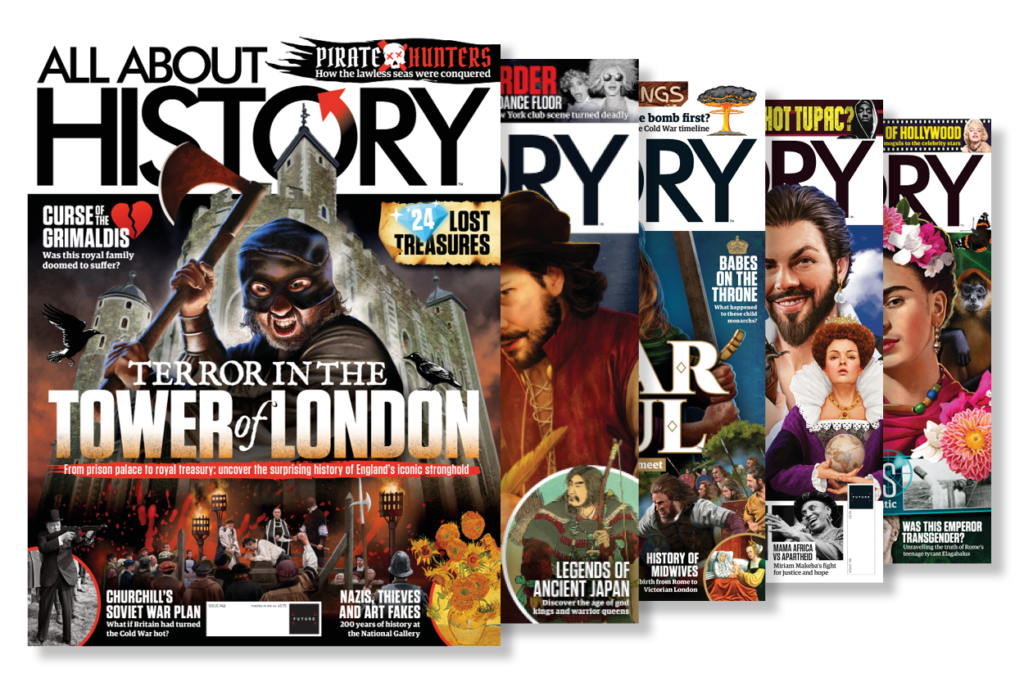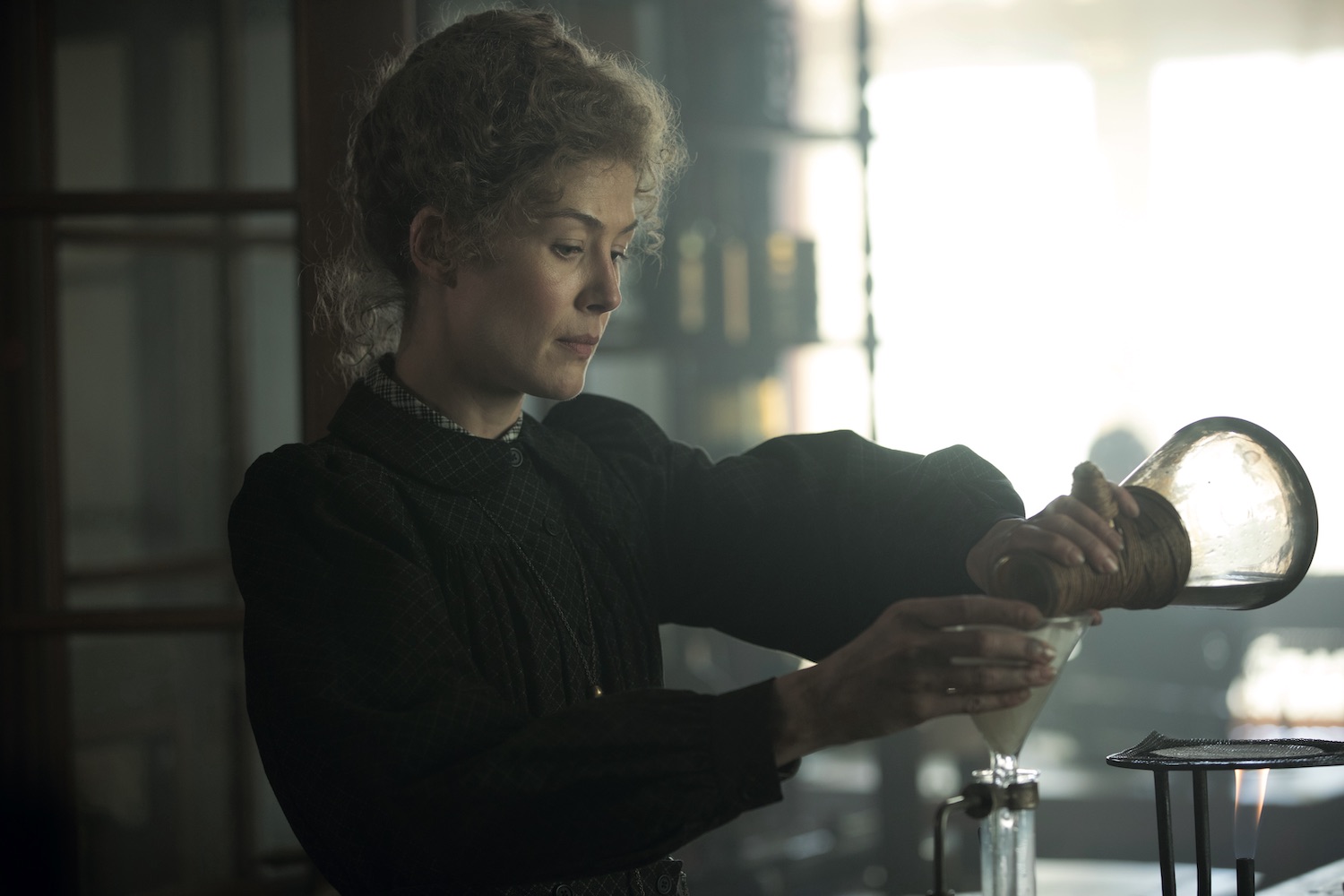Marie Curie’s life and work is put under the microscope
Certificate: 12 | Director: Marjane Satrapi | Cast: Rosamund Pike, Sam Riley, Anya Taylor-Joy | Released: DVD on sale 27 July
Subscribe to All About History now for amazing savings!
The consequences of breakthrough and discovery are imaginatively presented by French-Iranian director Marjane Satrapi in her biopic of pioneering scientist and two-time Nobel Prize winner, Marie Skłodowska Curie (1867-1934). This movie is far from a typically staid British melodrama: the former graphic novelist-turned-filmmaker presents history with dreamy flow to it, with passages interrupting the narrative structure.
We’re whisked off a New Mexico desert as a nuclear bomb is about to drop, a 1950s Ohio hospital where a young boy is undergoing chemotherapy, and 1986 Chernobyl in the midst of the disaster. In these vividly staged moments, Curie appears as somebody experiencing seer-like visions. The overall effect livens up what could have been a bog-standard story set exclusively in laboratories and stuffy parlour rooms, with eggheads delivering complicated dialogue. Satrapi’s aesthetic experimentation and Jack Thorne’s screenplay avoid the pitfalls that can make historical dramas deathly dull.
As well as cinematographer Anthony Dod Mantle’s vibrant use of light, which glows like radium, Satrapi is aided by an imperious performance from Rosamund Pike, who plays Curie. She’s the kind of actor able to communicate what’s on her mind with a subtle look, and she skilfully shows how intrinsically linked Curie’s romantic life was with her extraordinary achievements in science. These achievements shaped the 20th century, ushered in the Atomic Age and helped ground-breaking medical technology (X-ray machines) become more accurate. We quickly understand what makes her tick. She’s driven by the pursuit of knowledge, is consistently annoyed at having to prove her genius to those intellectually beneath her, and is frustrated by jealous establishment types trying to thwart her ambition.
Curie was deeply in love with French husband Pierre (Sam Riley) and their partnership was intrinsic to their shared success. In time, radioacitivity became the family business, as their daughter, Irène (Anya Taylor-Joy), picked up a Nobel Prize in chemistry for her work on artificial radioactivity. Crucially, Marie and Pierre’s competitive natures spurred each other on. “You’ve got a fine mind,” she tells her hubby, before adding, “But mine is finer.”
Of course, it wasn’t always picnics in the park and high-fives in the lab. When Pierre travels alone to Stockholm to pick up their joint Nobel Prize, he fails to mention his wife during the winner’s speech. Curie also experiences staggering amounts of sexism from university boards, who believe science is no place for a woman. Even Pierre isn’t above being patronising when they first meet. “I read your paper. It contained some excellent science,” he admits, without needing to add “for a woman”.
In taking a fresh and unexpected route into celebrated lives and history, Satrapi has made a complex, richly detailed biography informed more by the conventions of graphic novels than history books.
★★★★
Subscribe to
All About History now for amazing savings!


